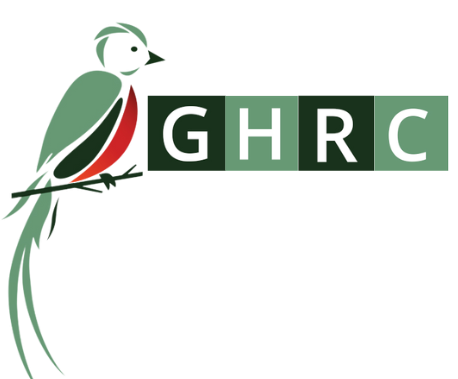Palacio de Justicia, Guatemala: Trial against 5 former civil patrollers taking place on Level 15 of the Tribunal Towers.
The oral and public debate stage in the trial against the 5 former members of the Civil Defense Patrol (PAC) accused of sexual violence and crimes against humanity began on January 5. The survivors of these crimes–36 Achi women–have been fighting for justice for 40 years. For the past ten years, lawyers with the Rabinal Community Law Firm (2019 winner of the Alice Zachmann Human Rights Defenders Award) have been representing the women in their fight for justice. After overcoming delays and obstacles in the judicial process, including a decision in 2019 by Judge Claudette Dominguez–infamous for ruling in favor of the military on transitional justice cases–finding there was insufficient evidence to send the case to trial, the women have at last arrived at a critical moment for justice.
High Risk Tribunal A: Inside the courtroom waiting for the next witness to take the stand.
GHRC staff have been attending the trial in Guatemala City. Over the last eight days of hearings, the prosecution has presented an array of witnesses, including survivors and experts, who have illustrated the systematic use of sexual violence as a tool employed by the Guatemalan State against Achi women. In her testimony on Tuesday, survivor Ana Garcia de Paz bravely recounted her experience surviving three months in a military camp and repeated sexual assault by PAC members after her family was massacred. She stated, “I am telling my story because I want justice. Justice for me and for the other victims.” Several other women and men testified, sharing their personal accounts of torture and sexual assault, which according to expert witness Arsenio García Cores, “serve as essential pieces of evidence in accordance with international law.” All the testimonies point to a clear pattern in which PAC members specifically targeted the Achi people, massacring whole communities and repeatedly raping women as part of a “counterinsurgency” strategy.
The next hearing is scheduled for Monday, January 17 at 8:30 am; the debate is expected to last through the month. GHRC will continue to accompany the women and support their calls for justice.
Police Continue to Terrorize Defenders in El Estor with Mine in Full Force
El Estor, Izabal: GHRC Advocacy Director gives Alice Zachmann Award to the El Estor Resistance.
Last week, GHRC’s Guatemala City Office Director and DC Advocacy Director traveled to El Estor, Izabal to meet with the El Estor Resistance and hand deliver the 2021 Alice Zachmann Award, which was presented and accepted by Olga Che at our virtual ceremony in December. Members of the Resistance voiced their ongoing concerns for their safety. While the states of exception in El Estor ended on December 7, 2021, police presence in the community remains high. According to community members, police are continuing to follow them and are even waiting for them when they leave their homes to antagonize them, threatening them with arrest. For the Resistance, this terrorization by the police has complicated their ability to organize their next steps against the mine and is reminiscent of intimidation strategies used during the internal armed conflict. As one of the members of the guild explained, “I’m afraid to go anywhere. We’ve been followed by cars without license plates and we’re afraid of what they will do to us. They took my father that way. I could be next.”
Lake Izabal: Mine visible in the distance.
One month after the Ministry of Energy and Mines announced the completion of the consultation of the Fenix Mine, mining operations appear to be in full force. On a Sunday afternoon, dozens of trucks circled around the mine, picking up and dropping off excavated nickel to be processed. But according to legal representative of the Resistance, Rafael Maldonado, “Mining operations never stopped. They said that they did, but that was a lie.” Maldonado has worked with the Fisherman’s Guild since filing the injunction against the mine in 2017, which was resolved in 2019 when the Constitutional Court ruled that the mine had been operating illegally since 2005 and ordered all operations to be halted until a consultation could be carried out. He explained, “The consultation process is notoriously illegal. Not only did it exclude the guild, it was carried out while the mine was operating. It’s completely illegitimate.”
Fenix Mine, El Estor, Izabal: Mine in full operation on a Sunday afternoon.
The Resistance has moved forward with a legal complaint denouncing the consultation as illegal, but the hope of resolving the issue in domestic courts is low. Maldonado explained, “The courts have been co-opted. How can we rely on them to get justice in this case?” Plans to take the case to international courts are underway, but those processes often take years. GHRC continues to support the Resistance through direct accompaniment and by providing material and other support, as needed. Please consider donating so that we can continue to support the vital, courageous work of the Resistance of El Estor.

